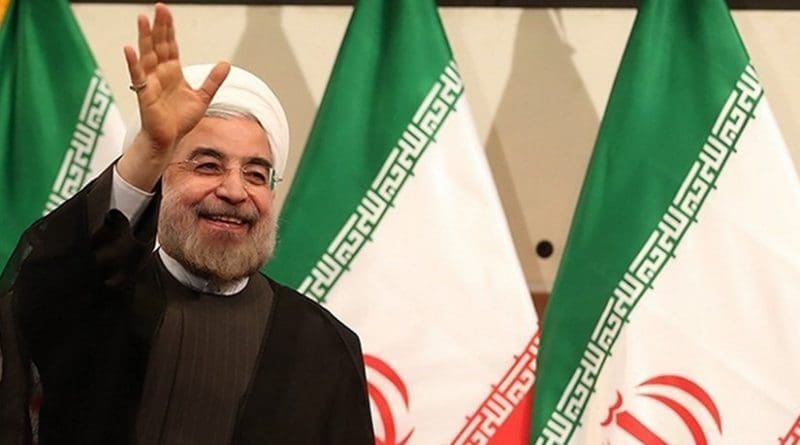Trump Calls For Change In Iranian Regime
By Arab News
By Siraj Wahab
US President Donald Trump on Monday blasted the clerical regime in Tehran for repressing its people as anti-government protests and demonstrations spread to more Iranian cities claiming, according to the Associated Press, more than 12 lives, including a policeman.
According to state TV, the protesters tried to overrun military bases and police stations before security forces repelled them.
The demonstrations, the largest in Iran since its disputed 2009 presidential election, began on Thursday in Mashhad over economic issues and have since expanded to several cities. Some protesters are chanting against the government and the supreme leader, Ayatollah Ali Khamenei. Hundreds of people have been arrested.
“TIME FOR CHANGE!” wrote Trump on his Twitter account, expressing US support for the demonstrators. The country is “failing at every level despite the terrible deal made with them by the Obama Administration,” he said.
“The great Iranian people have been repressed for many years,” he wrote. “They are hungry for food & for freedom. Along with human rights, the wealth of Iran is being looted.”
Iranian state television aired footage of a ransacked private bank, broken windows, overturned cars, and a firetruck that appeared to have been set ablaze. It reported that clashes on Sunday night killed 10 people.
“Armed protesters tried to take over some police stations and military bases but faced serious resistance from security forces,” state TV reported. It did not say where the attacks occurred.
Later Monday, state TV said clashes had killed six people in the western town of Tuyserkan, 295 km southwest of Tehran. It said clashes in the town of Shahinshahr, 315 km south of Tehran, had killed three more. It did not say where the 10th person had been killed.
Earlier Monday, the semi-official ILNA news agency quoted Hedayatollah Khademi, a representative for the town of Izeh, as saying that two people had died there Sunday night.
He said the cause of death was not immediately known, though authorities later described one of the deaths as the result of a personal dispute. Many in Izeh, some 455 km southwest of Tehran, have hunting rifles in their homes.
Harvard scholar and Iranian affairs expert Majid Rafizadeh called the protests unprecedented.
“People from all sectors — working class, middle class, women and youth — are coming together. They are demanding regime change, not just the limited reforms we saw in previous protests,” he told Arab News.
“The modus operandi of the regime is based on using brute force to respond to demonstrators. This will definitely make the size of demonstrations grow larger,” he said.
According to Rafizadeh, Iran has had three revolutions in the past century. “There are some similarities between these protests and the ones that occurred in 1979. People are fed up with corruption, authoritarianism and they are demanding democracy and respect for human rights and freedoms. But these protests also highlight the frustrations over poverty, unemployment and the regime’s support of, and funding for, terrorist and militia groups across the region.”
Two protesters were also killed in clashes late Saturday in Doroud, some 325 km southwest of Tehran in Luristan province, authorities said.
On Sunday, Iran blocked access to Instagram and the popular messaging app Telegram, which have been used by activists to organize. President Hassan Rouhani acknowledged the public’s anger over the Islamic Republic’s flagging economy, though he and others warned that the government would not hesitate to crack down on those it considered lawbreakers.
That was echoed Monday by the chief of the Iranian Judiciary, Ayatollah Sadegh Larijani, who urged authorities to confront rioters, state TV reported.
“I demand all prosecutors across the country get involved and their approach should be strong,” he said.
Rouhani also stressed Monday that Iran “has seen many similar events and passed through them easily.”
Oubai Shahbandar, a Syrian-American analyst and fellow at the New America Foundation’s International Security Program, said: “What is happening in Iran has all the signs of being the early stages of a revolution. The silence of Khamanei as this uprising spreads is deafening.”
He said the Iranian Revolutionary Guards were “showing indications that they are preparing for mass reprisals against the protesters.”
He said it was a truly a grassroots movement. “They (the protesters) are calling for the fall of the regime. Period. Khamanei is going to resort to violence to try to hold on to power, but this time around, he may not succeed the way he did in suppressing the 2009 green revolution.”

